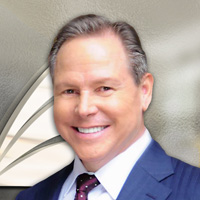Build Your Retirement Plan With a Strong Fiscal Foundation
You need to develop a strategy that can get you to and through retirement.

Profit and prosper with the best of Kiplinger's advice on investing, taxes, retirement, personal finance and much more. Delivered daily. Enter your email in the box and click Sign Me Up.
You are now subscribed
Your newsletter sign-up was successful
Want to add more newsletters?

Delivered daily
Kiplinger Today
Profit and prosper with the best of Kiplinger's advice on investing, taxes, retirement, personal finance and much more delivered daily. Smart money moves start here.

Sent five days a week
Kiplinger A Step Ahead
Get practical help to make better financial decisions in your everyday life, from spending to savings on top deals.

Delivered daily
Kiplinger Closing Bell
Get today's biggest financial and investing headlines delivered to your inbox every day the U.S. stock market is open.

Sent twice a week
Kiplinger Adviser Intel
Financial pros across the country share best practices and fresh tactics to preserve and grow your wealth.

Delivered weekly
Kiplinger Tax Tips
Trim your federal and state tax bills with practical tax-planning and tax-cutting strategies.

Sent twice a week
Kiplinger Retirement Tips
Your twice-a-week guide to planning and enjoying a financially secure and richly rewarding retirement

Sent bimonthly.
Kiplinger Adviser Angle
Insights for advisers, wealth managers and other financial professionals.

Sent twice a week
Kiplinger Investing Weekly
Your twice-a-week roundup of promising stocks, funds, companies and industries you should consider, ones you should avoid, and why.

Sent weekly for six weeks
Kiplinger Invest for Retirement
Your step-by-step six-part series on how to invest for retirement, from devising a successful strategy to exactly which investments to choose.
When people dream about retirement, they think about the things they'll do, the places they'll go, the people they'll see.
Unfortunately, too often what they don't think about is how they're going to pay for all that.
They've got Social Security coming, maybe some savings, a 401(k) from work and perhaps a pension—but no real idea of how far that will stretch or what their future may require.
From just $107.88 $24.99 for Kiplinger Personal Finance
Become a smarter, better informed investor. Subscribe from just $107.88 $24.99, plus get up to 4 Special Issues

Sign up for Kiplinger’s Free Newsletters
Profit and prosper with the best of expert advice on investing, taxes, retirement, personal finance and more - straight to your e-mail.
Profit and prosper with the best of expert advice - straight to your e-mail.
Instead, they'll pick out an age. "I'm going to retire at 67," they'll say, without any plan for how that's going to happen.
But no one can say with 100% certainty what their life is going to look like five years out, much less in 10 or 20 years. And some people retiring in their 60s could live for another 25 or even 30 years. So the number you really have to know isn't how old you'll be when you retire—it's how much you'll need.
Then you and your financial adviser can develop a strategy to help you work toward that number.
In this way, a financial adviser is like an architect, creating a "retirement blueprint" for you based on your individual needs and goals. With such a blueprint, your adviser can better assist you with charting out a retirement that matches your vision for your later years.
A lot of the people I meet with know what they want their retirement to look like, and they're working on acquiring what they need to build it, but they don't have that blueprint to put the whole thing together. They don't have a structured way of drawing down certain assets, implementing cash flow on others, dealing with inflation and taxes or assuring asset protection if someone needs long-term care.
Instead, like so many people who are nearing or in retirement, they have a sort of "kitchen junk drawer" of retirement products that they've accumulated over the years, but with no overarching strategy that can help them work toward achieving the secure and satisfying retirement they desire.
The first conversation you have with your financial adviser lays the cornerstone, so treat it like an interview. Talk to more than one adviser until you find a connection, and make sure it's about developing a strategy, not focused solely on products.
One thing I like to do with new clients is run a Morningstar report early on for a 10-year look back at their current investment mix. This will give them a window into the past and an opportunity to see how their portfolio behaved during certain market cycles. Then we can look at the sort of behaviors a different plan would have compared with the plan they're using.
Financial vehicles—such as fixed annuities with guaranteed lifetime income riders and single premium immediate annuities—that guarantee steady, safe cash flow should make up the foundation of your fiscal house. Those guarantees, of course, are backed by the financial strength of the issuing insurer. Then you can sprinkle in certain amounts of risk, depending on your tolerance. (I like to lean on the Rule of 100, which uses age to determine asset allocation. For example, if you're 50, 50% of your money should be in safer investments and 50% would be a bit riskier. At 65, 65% should be safe. And so on.)
A good adviser will make sure the strategy is designed to evolve with you in your golden years. If you need to turn on a dime because of a life change, you'll have the flexibility to do that. And as you go, he or she can help you find the tools to help fill gaps in your retirement plan.
You'll make decisions based on information instead of emotion. Your adviser will focus on creating a strategy for you, not solely on products.
The goal is to build a cohesive strategy together that is designed to help you keep the lifestyle you had before retirement. Or, better yet, potentially provide you with the lifestyle of your dreams.
Kim Franke-Folstad contributed to this article.
Investment advisory services offered only by duly registered individuals through AE Wealth Management, LLC (AEWM). AEWM and Solutions First, Inc. are not affiliated companies. The appearances in Kiplinger were obtained through a PR program. The columnist received assistance from a public relations firm in preparing this piece for submission to Kiplinger.com. Kiplinger was not compensated in any way.
Profit and prosper with the best of Kiplinger's advice on investing, taxes, retirement, personal finance and much more. Delivered daily. Enter your email in the box and click Sign Me Up.

Joseph Donti is a Registered Investment Advisor at Safeguard Investment Advisory Group. He runs the Arizona office alongside his wife, Patty Donti, and is committed to helping families create amazing retirements and find lasting financial confidence. He has passed his Series 65 exam and holds life and health licenses in Arizona and California.
-
 Over 65? Here's What the New $6K 'Senior Deduction' Means for Medicare IRMAA Costs
Over 65? Here's What the New $6K 'Senior Deduction' Means for Medicare IRMAA CostsTax Breaks A new deduction for people over age 65 has some thinking about Medicare premiums and MAGI strategy.
-
 U.S. Congress to End Emergency Tax Bill Over $6,000 Senior Deduction and Tip, Overtime Tax Breaks in D.C.
U.S. Congress to End Emergency Tax Bill Over $6,000 Senior Deduction and Tip, Overtime Tax Breaks in D.C.Tax Law Here's how taxpayers can amend their already-filed income tax returns amid a potentially looming legal battle on Capitol Hill.
-
 5 Investing Rules You Can Steal From Millennials
5 Investing Rules You Can Steal From MillennialsMillennials are reshaping the investing landscape. See how the tech-savvy generation is approaching capital markets – and the strategies you can take from them.
-
 When Estate Plans Don't Include Tax Plans, All Bets Are Off: 2 Financial Advisers Explain Why
When Estate Plans Don't Include Tax Plans, All Bets Are Off: 2 Financial Advisers Explain WhyEstate plans aren't as effective as they can be if tax plans are considered separately. Here's what you stand to gain when the two strategies are aligned.
-
 Counting on Real Estate to Fund Your Retirement? Avoid These 3 Costly Mistakes
Counting on Real Estate to Fund Your Retirement? Avoid These 3 Costly MistakesThe keys to successful real estate planning for retirees: Stop thinking of property income as a reliable paycheck, start planning for tax consequences and structure your assets early to maintain flexibility.
-
 I'm a Financial Planner: These Small Money Habits Stick (and Now Is the Perfect Time to Adopt Them)
I'm a Financial Planner: These Small Money Habits Stick (and Now Is the Perfect Time to Adopt Them)February gets a bad rap for being the month when resolutions fade — in fact, it's the perfect time to reset and focus on small changes that actually pay off.
-
 Social Security Break-Even Math Is Helpful, But Don't Let It Dictate When You'll File
Social Security Break-Even Math Is Helpful, But Don't Let It Dictate When You'll FileYour Social Security break-even age tells you how long you'd need to live for delaying to pay off, but shouldn't be the sole basis for deciding when to claim.
-
 I'm a Wealth Adviser Obsessed With Mahjong: Here Are 8 Ways It Can Teach Us How to Manage Our Money
I'm a Wealth Adviser Obsessed With Mahjong: Here Are 8 Ways It Can Teach Us How to Manage Our MoneyThis increasingly popular Chinese game can teach us not only how to help manage our money but also how important it is to connect with other people.
-
 Global Uncertainty Has Investors Running Scared: This Is How Advisers Can Reassure Them
Global Uncertainty Has Investors Running Scared: This Is How Advisers Can Reassure ThemHow can advisers reassure clients nervous about their plans in an increasingly complex and rapidly changing world? This conversational framework provides the key.
-
 Should You Jump on the Roth Conversion Bandwagon? A Financial Adviser Weighs In
Should You Jump on the Roth Conversion Bandwagon? A Financial Adviser Weighs InRoth conversions are all the rage, but what works well for one household can cause financial strain for another. This is what you should consider before moving ahead.
-
 The 8 Stages of Retirement: An Expert Guide to Confidence, Flexibility and Fulfillment, From a Financial Planner
The 8 Stages of Retirement: An Expert Guide to Confidence, Flexibility and Fulfillment, From a Financial PlannerRetirement planning is less about hitting a "magic number" and more about an intentional journey — from understanding your relationship with money to preparing for your final legacy.